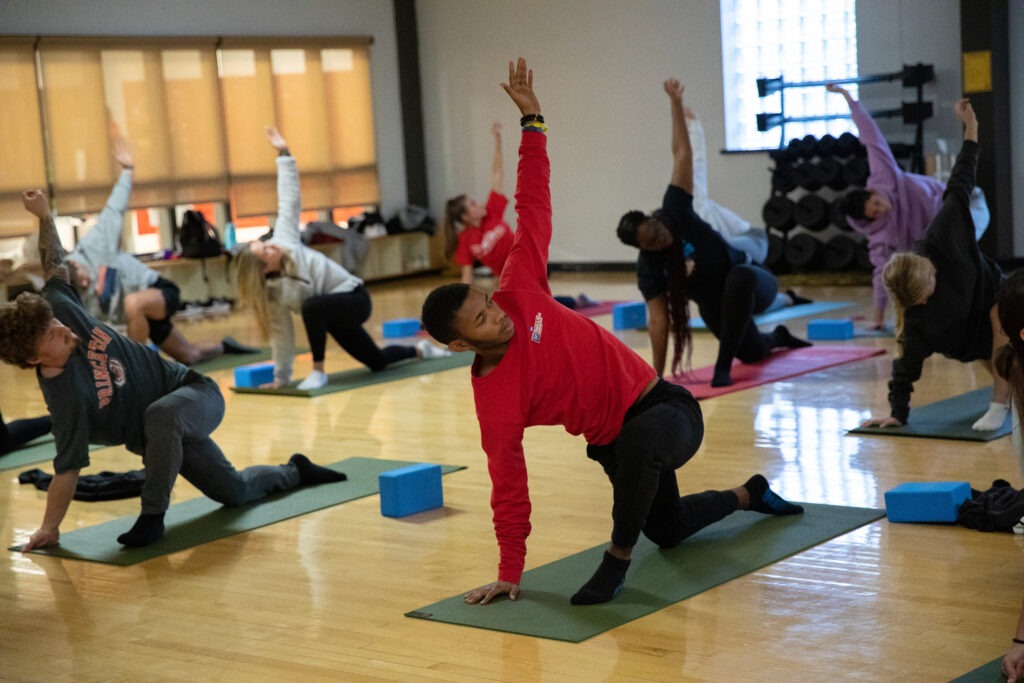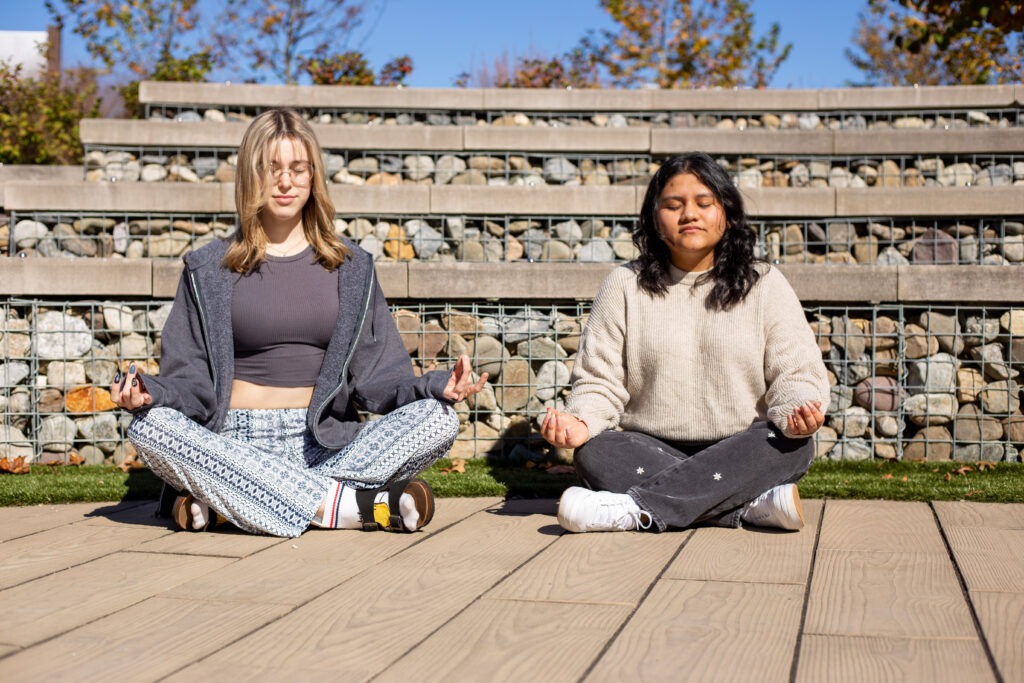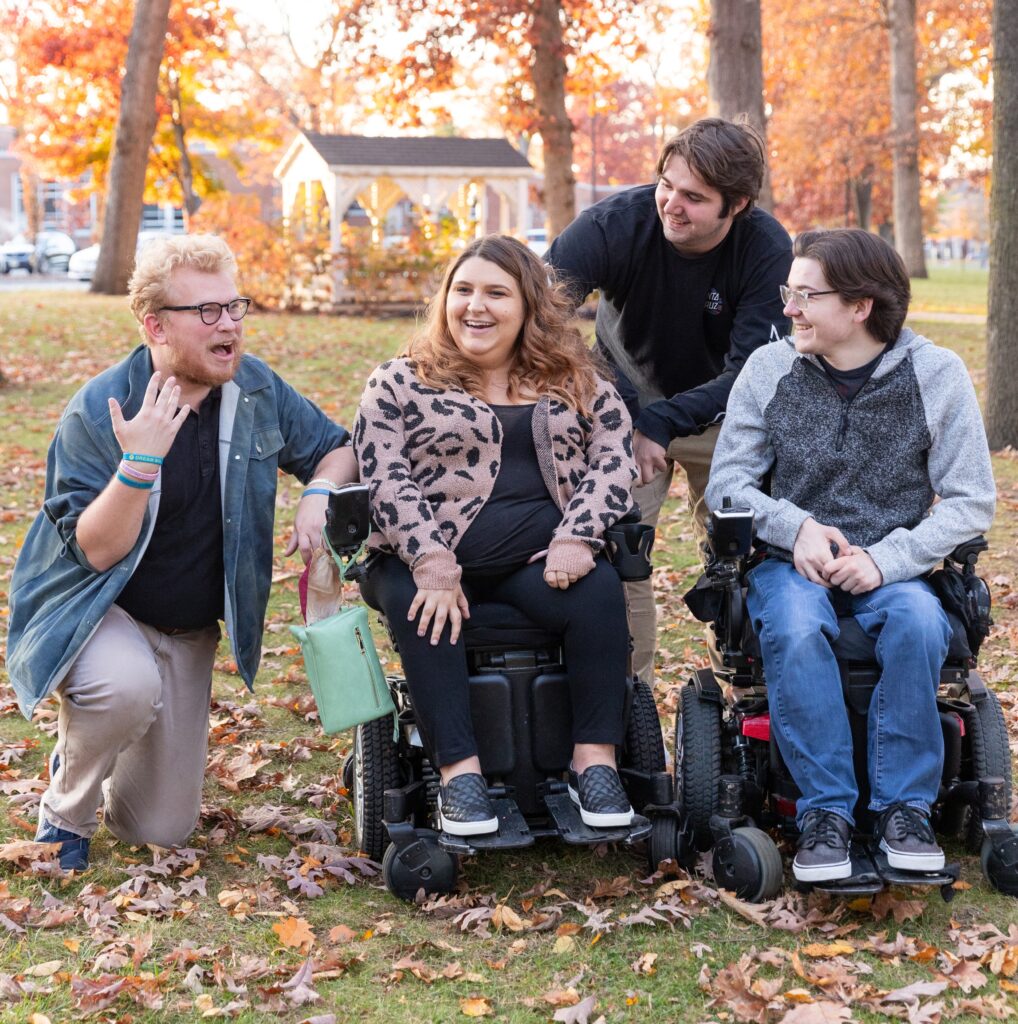Part of a series with Rowan University’s Wellness Center, this collaboration aims to educate students about personal well-being options. For further updates, follow @rowanuwellness on social.
Written by Nardin Salib, Wellness Center intern and graduate student pursuing a master’s in higher education
Whether you are a traditional graduate student entering your program directly after undergrad, or someone returning to school after time in the workforce or raising a family, one thing remains true—your health is the most valuable investment you can make.
When we think about health, the typical reactions might include: “I need to hit the gym,” “I should buy better groceries,” or “I really need to go on a diet.” But health is much more than that.
Redefining Health
As defined by the World Health Organization and quoted by Felman (2023), health is “a state of complete physical, mental, and social well-being and not merely the absence of disease or infirmity.”
Yes, that might involve exercise or healthy eating—but it doesn’t have to start there. As a graduate student, no matter your age or stage in life, building healthy habits is essential for thriving, not just surviving.
Physical Wellness
- Walk instead of driving to nearby destinations like class or the gym.
- Choose the stairs instead of the elevator when you can.

Mental Wellness
- Practice regular self-reflection and check-ins.
- Therapy can be an excellent tool—but so can conversations with someone you trust.

Social Wellness
- Set clear boundaries between work and personal time.
- Take a “no-contact” day with friends to recharge—unless it’s an emergency.

Investing in your health as a graduate student means finding balance and building habits that nourish your body, mind, and relationships. Remember, small, intentional steps toward well-being can help you not just survive grad school—but truly thrive.
Source
Felman, A. (2023, April 19). What is health?: Defining and preserving good health. Medical News Today.
Additional Student Wellness Stories
Keep reading student wellness stories to learn how Rowan Profs support their mental, physical and emotional well-being. Through Rowan Thrive, Rowan University provides a comprehensive framework designed to help students live in alignment with their values and cultivate resilience across six core areas of well-being.
Internship & Experiential Learning Stories
Learn how Rowan Profs go Beyond the Classroom to grow professionally, as well as personally, through internships and other experiential learning. Experiential learning includes hands-on learning opportunities provided through research, student clubs, campus leadership, student worker jobs, service-learning projects and volunteerism. In addition, Rowan’s Office of Career & Professional Development provides career support that’s more than just advice – it’s events, connections and real guidance to help students thrive after college.
Additional Student Wellness Stories
Keep reading student wellness stories to learn how Rowan Profs support their mental, physical and emotional well-being. Through Rowan Thrive, Rowan University provides a comprehensive framework designed to help students live in alignment with their values and cultivate resilience across six core areas of well-being.

